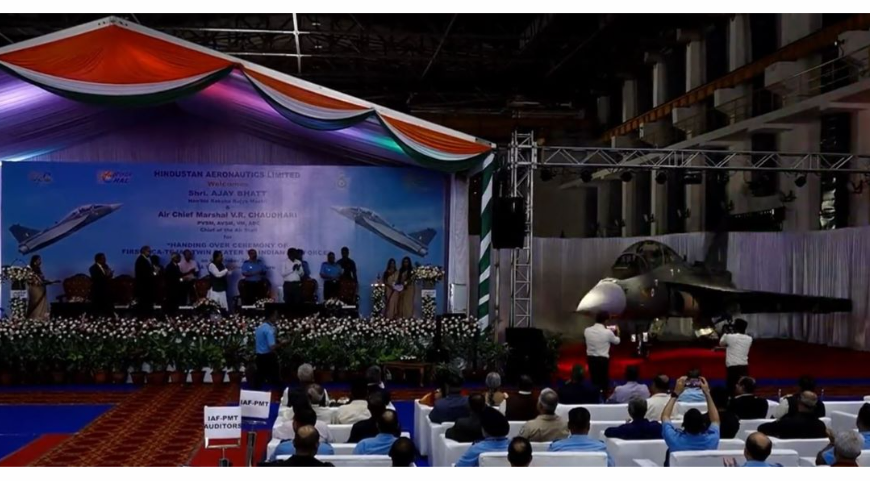The Indian Air Force has taken delivery of the first twin-seat light combat aircraft (LCA) Tejas produced by state-owned Hindustan Aeronautics Limited. [ Photo, HAL/ screenshot]
The Indian Air Force (IAF) has taken delivery of the first twin-seat light combat aircraft (LCA) Tejas produced by state-owned Hindustan Aeronautics Limited (HAL).
The aircraft designed for fighter pilot training was presented to military officials during a ceremony Wednesday in Bengaluru, India.
“I am proud to be part of this historic occasion and salute the spirit of HAL, which has been spearheading Swadeshi manufacturing in Defense,” Minister of State for Defense Ajay Bhatt said.
IAF has orders for 18 of the aircraft, eight of which are expected to be delivered by the end of 2024.
“This historic event today will mark the achievement of a key milestone of producing an LCA twin-seater, which is designed with a strategic intent of graduating the budding pilots from the twin-seater variants to fighter pilots,” the aircraft manufacturer told the Hindustan Times.
The LCA Tejas is an all-weather, multirole 4.5 generation fighter designed for offensive air support and close combat and ground attack, according to HAL. The single-seat variants are under production for IAF and the Indian Navy.
“It is an amalgamation of contemporary concepts and technologies, such as relaxed static stability, quadraplex fly-by-wire flight control, carefree maneuvering, advanced glass cockpit, integrated digital avionics systems, and advanced composite materials for the airframe,” HAL told the Times of India.
The fighter’s development in India has created a shift in the military’s defense procurement. “It has demonstrated that India has the talent, knowledge, and capability to design, develop, and manufacture world-class fighters,” Bhatt said.
In August, HAL reported that its first-quarter profits rose 31 percent due to its fulfillment of orders. The company, which is also a supplier to Airbus and Boeing, reported a net profit of $98.28 million for the quarter ending June 30 and has benefited from the government’s campaign to “make in India,” according to Reuters.

